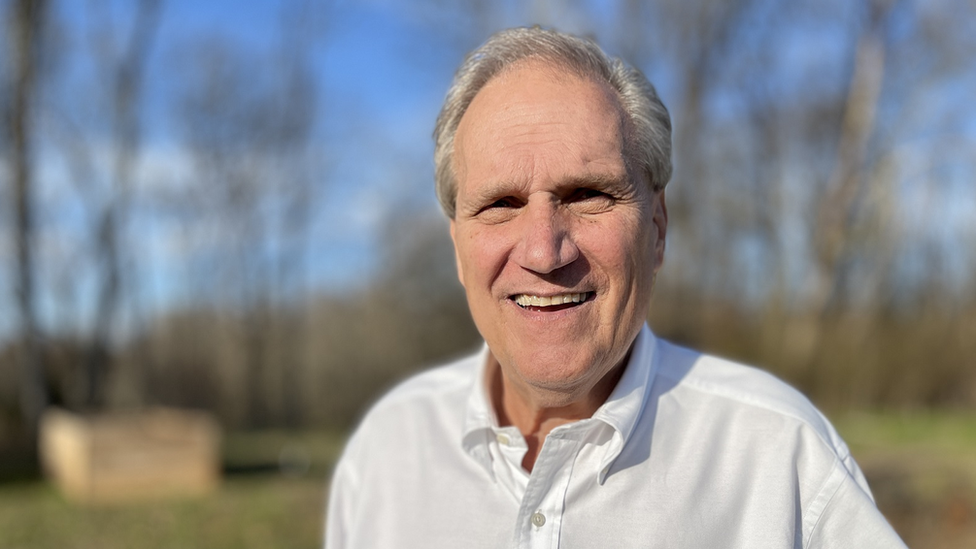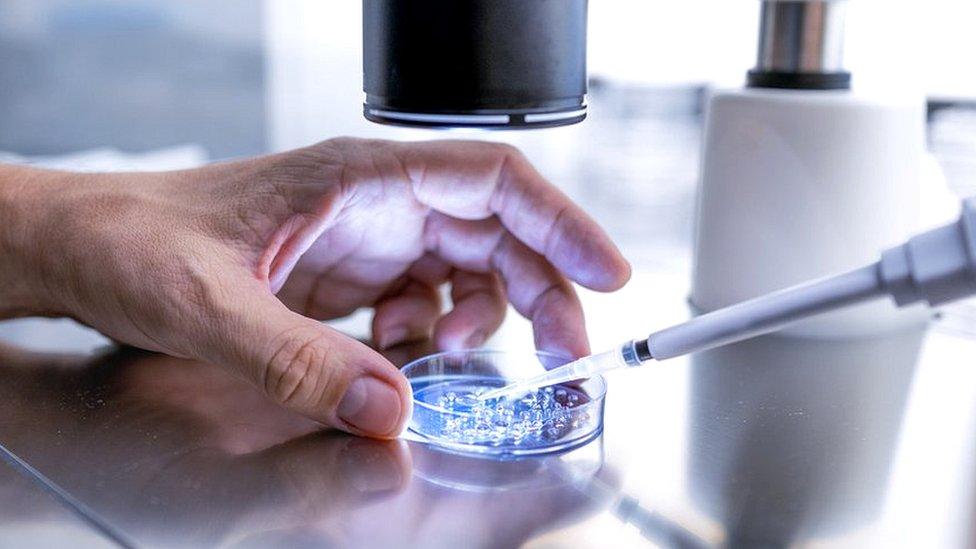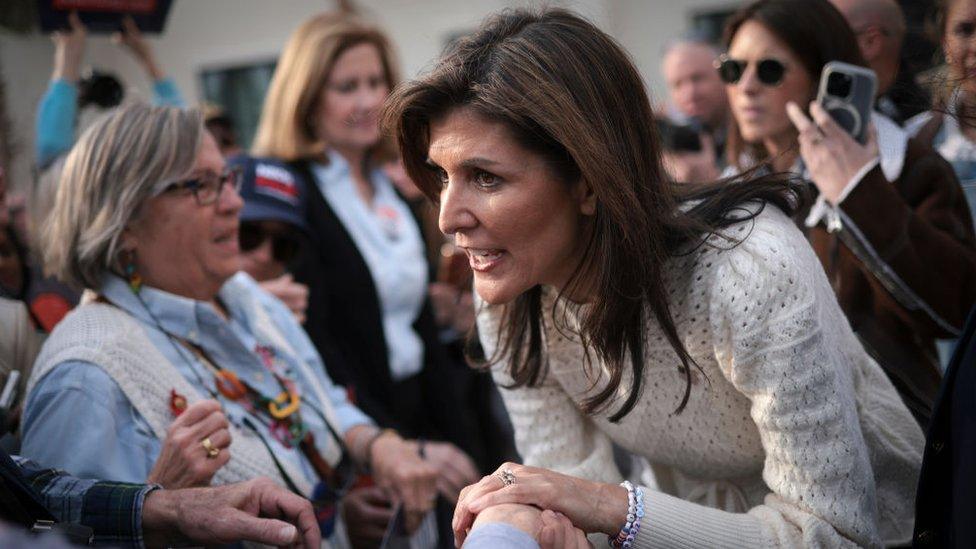Alabama's legislature pushes to protect IVF after court ruling
- Published

Some hospitals and clinics pulled fertility services after the court ruling on 16 February (file image)
Republicans in Alabama will introduce a bill designed to protect access to IVF treatment, after a court ruling cast doubt on its availability.
The state's top court ruled earlier this month that frozen embryos have the same rights as children and people can be held liable for destroying them.
While it did not ban or restrict IVF, it created a legal headache for clinics and some pulled their services.
The bill is expected to be introduced in the Alabama Senate on Tuesday.
Republicans hold a majority in the chamber and Senator Tim Melson, who is putting forward the bill, said he was confident "reasonable minds" would come together to pass it.
Mr Melson, who is also a doctor, told the BBC that the issue became his priority after "a lot of people came into my office in Montgomery and explained that this is the only option they have for a family and it's in jeopardy".
"We need to make sure that clinics are not put in jeopardy for manslaughter, or some criminal homicide or negligent homicide when an unused embryo is discarded," he said. "I think we need to make it clear that when embryos are discarded, it was because it was not the optimal embryo to use."
Alabama's attorney general earlier said he had no intention of prosecuting clinics, but many are still waiting for legal clarity.
Mr Melson expects the bill to progress quickly. "It'll get introduced on Tuesday, be in a committee on Wednesday and then on the special order calendar on Thursday," he said.
The whole process should take two to three weeks, he said, before the bill is eventually signed into law by the governor.

Republican Senator Tim Melson put forward a bill which is set to be introduced on Tuesday
A separate bill was put forward by Democrats in the Alabama House shortly after the ruling on 16 February.
That bill states that any fertilised embryo outside a uterus is not an unborn child. House Minority Leader Anthony Daniels, who introduced the bill, told the BBC it "essentially pauses the Supreme Court decision" and makes it law that "a fertilised embryo cannot be considered a child".
"Alabama is ground zero," he said. "Those other countries and other places that consider themselves to be extremely conservative could follow suit. And so we must address this head on."
His office told the BBC that it received more than 600 emails related to IVF in the 48 hours after he introduced the bill.
Mr Daniels said he "sees an opportunity for Democrats to have a seat at the table in addressing this issue". That's often not the case, with Democrats outnumbered in the Alabama by a significant margin.
"If we don't have a seat at the table, then we're going to be very vocal," he said.
But given the Republican supermajority in Alabama's legislature, Mr Melson's bill is much more likely to pass than Mr Daniels'.
The Republican bill is not likely to fully oppose the Supreme Court ruling, in order to avoid alienating conservatives who believe an embryo is a human life regardless of its location. But crucially it has to also satisfy those who disagree with the ruling and its implications.
"I know my bill works," Mr Melson said. "I'll be glad to listen to the House bill. But I know mine works. And that's after talking with some of the greatest minds in Montgomery."
Among those minds are legislative experts, lawyers and physicians.
One of the doctors is Beth Malizia, the co-founder of Alabama Fertility Specialists which has put new IVF treatments on hold.
"I've spoken with Senators," she said. "I've spoken with many, many people in that area to offer our support and whatever we can do to help them to move this process along. So, I'm feeling cautiously optimistic."
Meanwhile, Eric Johnston, the president of the Alabama Pro-Life Coalition, told the BBC he has been speaking to lawmakers about finding a legislative solution.
"If we can have an agreement between the pro-life community and the medical community, then the bill will be introduced in the legislature," he said. "It will go through the processes very quickly and can be done within two weeks once we come to an agreement."
There are broader political considerations in passing legislation too, especially for Republicans.
The court decision in Alabama risks setting up a political backlash heading into the November presidential election. It threatens to undermine the party's attempts to court suburban women and independent voters, especially those who are already uncomfortable with abortion restrictions.
Democrats, meanwhile, have said the ruling is a major reason for voters to come out in support of them. They believe the reproductive rights debate includes increasing concerns over access to medication, care and now IVF treatment.
Former President Donald Trump, the clear front-runner in the race for the Republican nomination, called on Alabama lawmakers to preserve access to the treatment. Has that pressure impacted Republicans? Mr Melson is emphatic it has not.
"No. No... President Biden came out, Nikki Haley commented. And if they thought we should go the opposite way, I'm still going to do what I think is right," he said.
Is he worried about losing votes if Republicans do not get it right?
"'I'm not worried about it. Every decision we make, I'm sure we lose votes," he said. "And you know, it's okay. Let's just get it right."
You may also be interested in:
Manon and Chris have been unable to conceive since having their daughter Efa
Related topics
- Published23 February 2024

- Published22 February 2024

- Published23 February 2024
